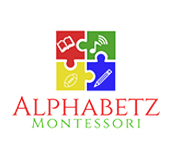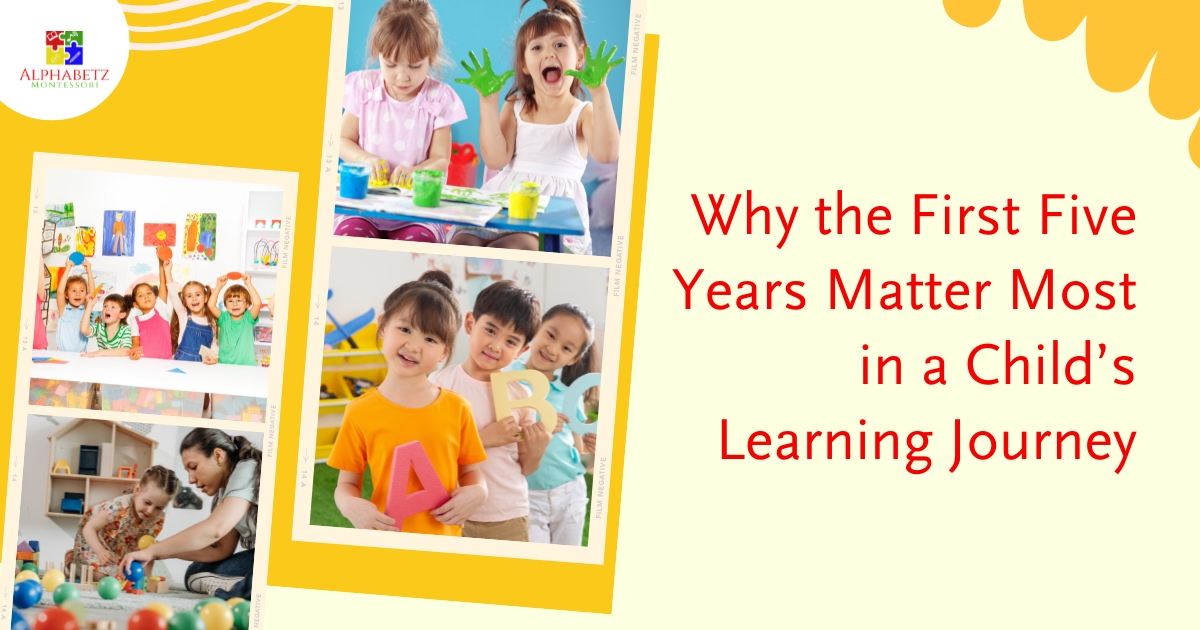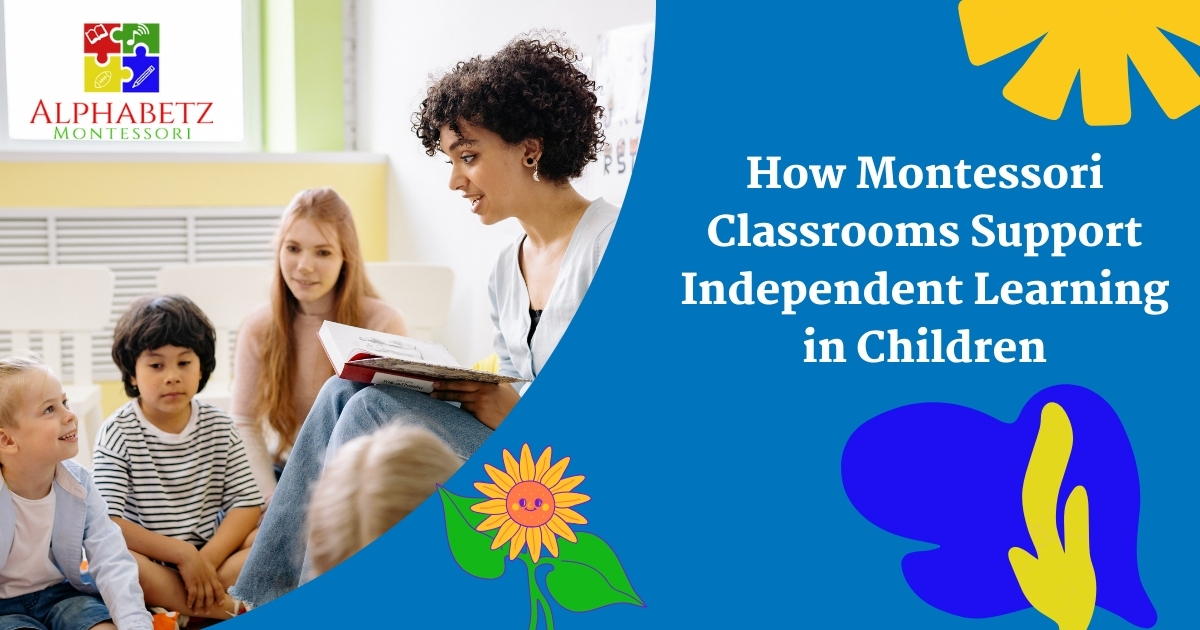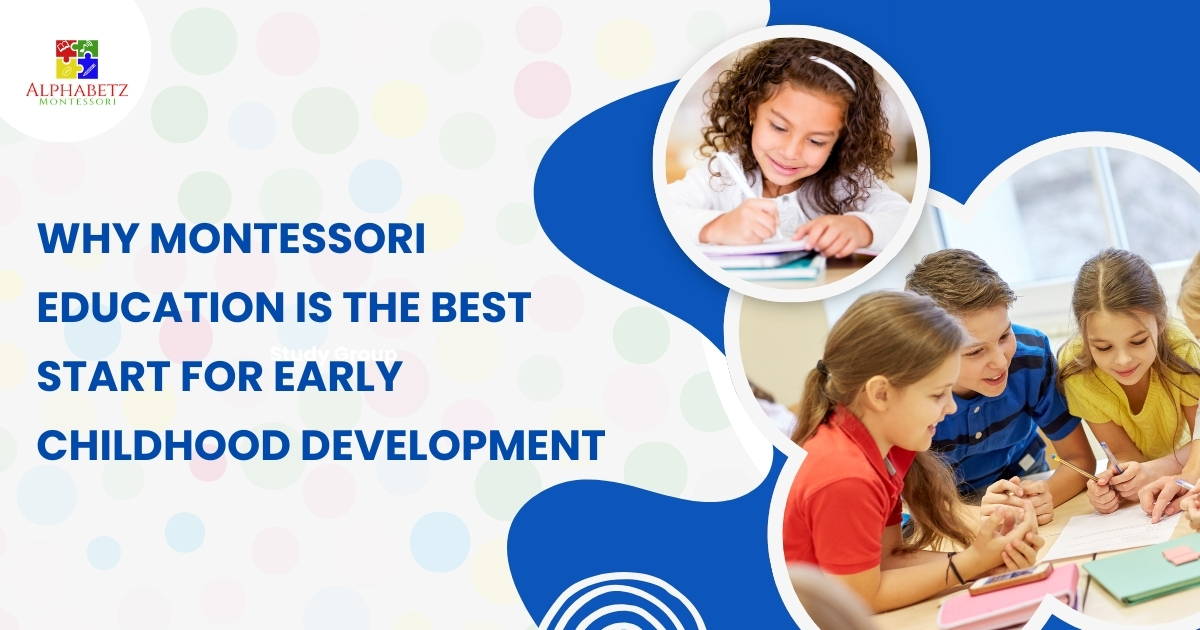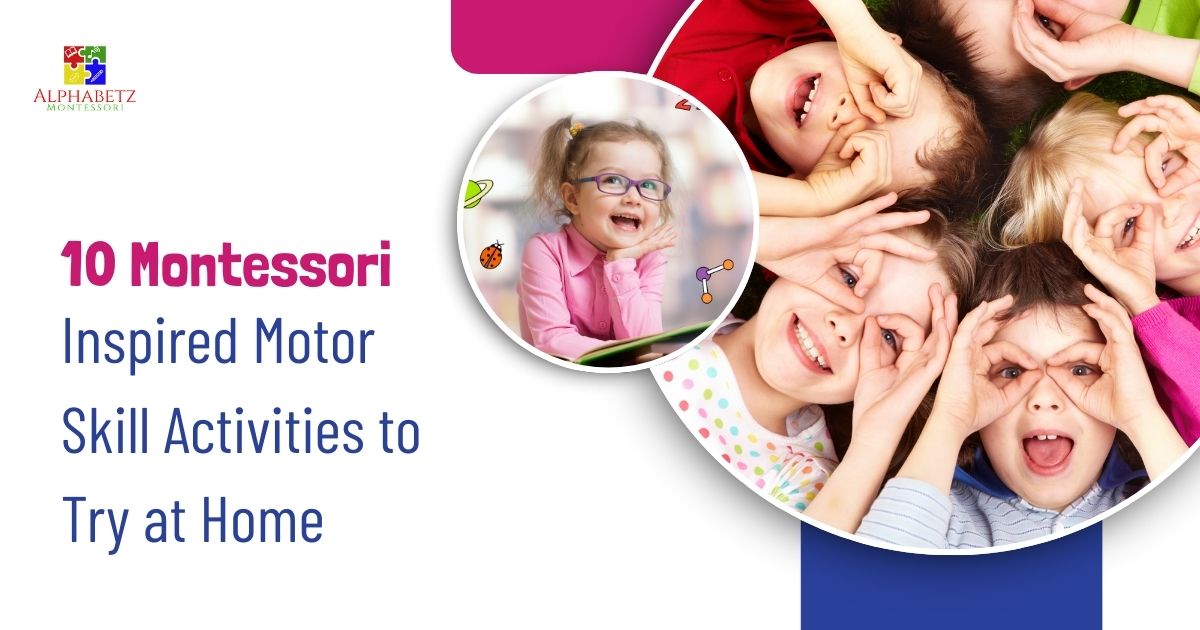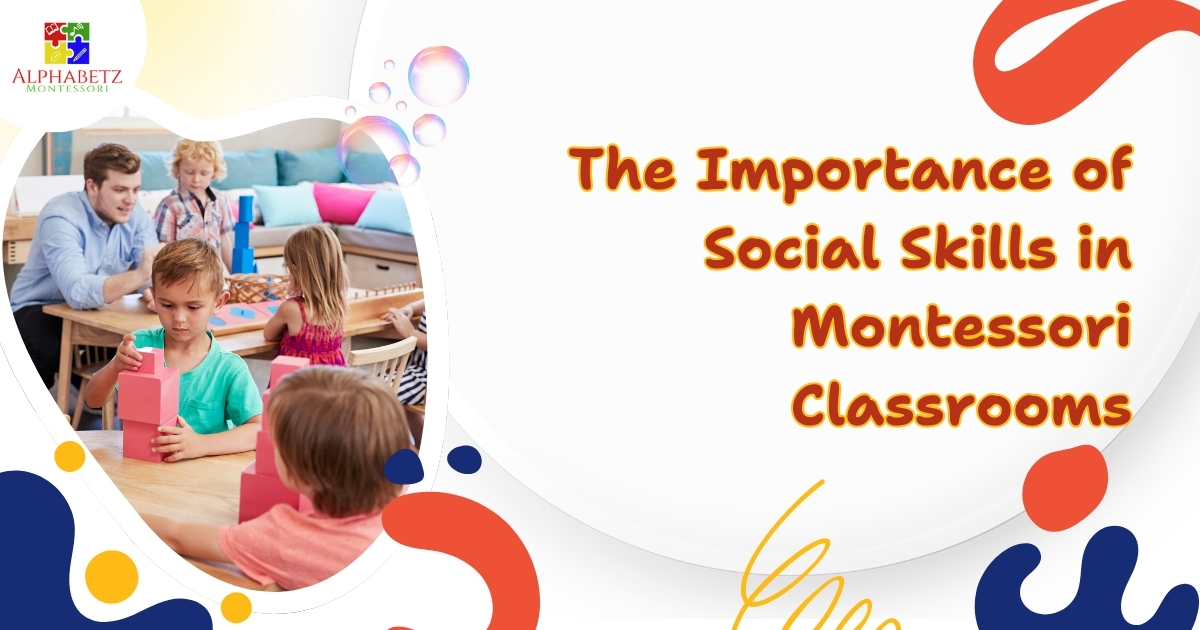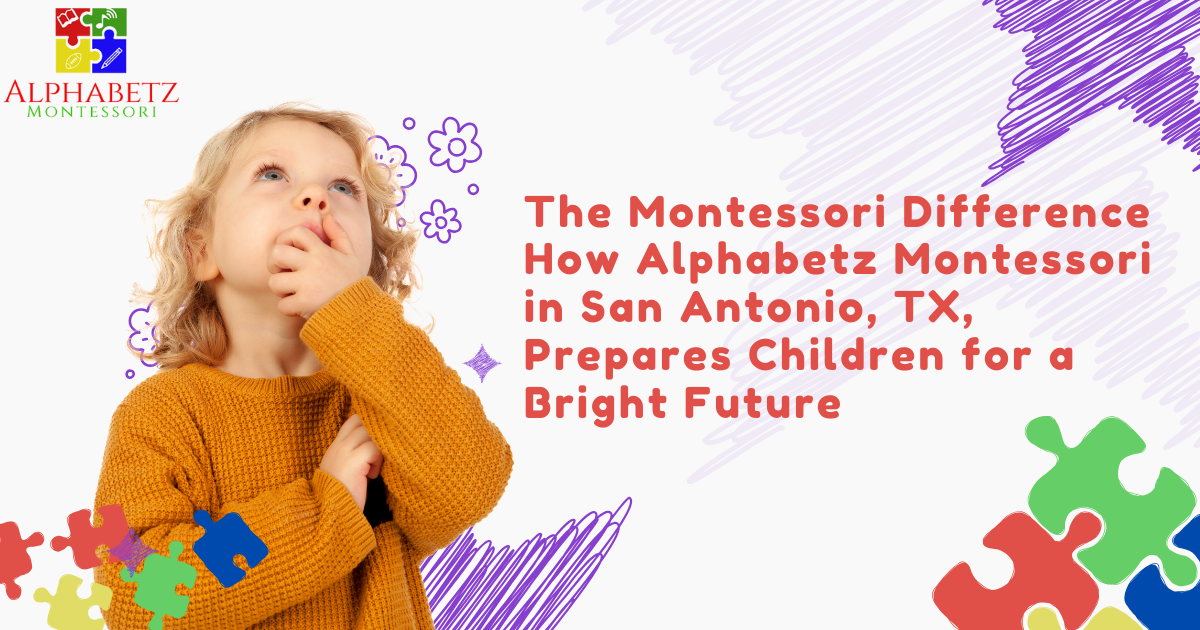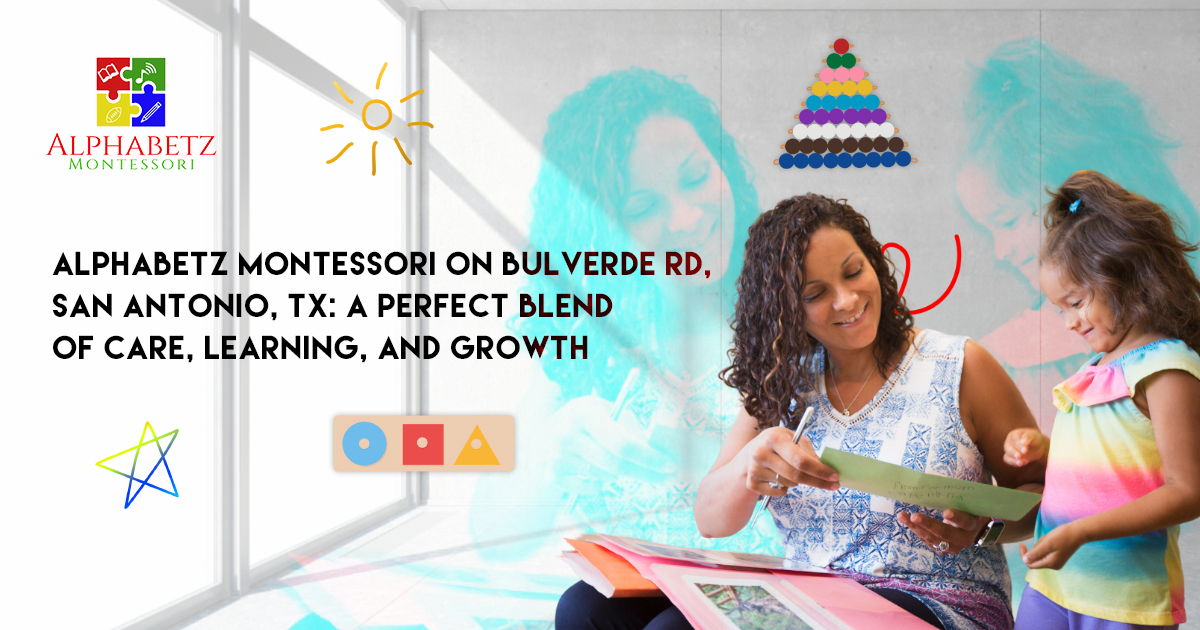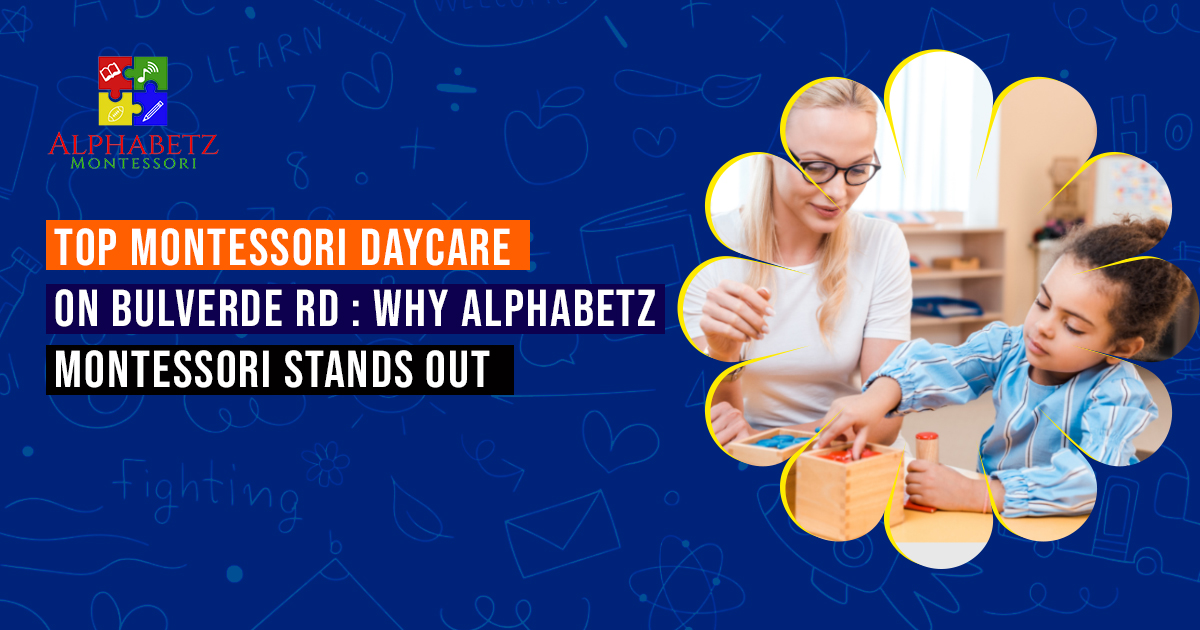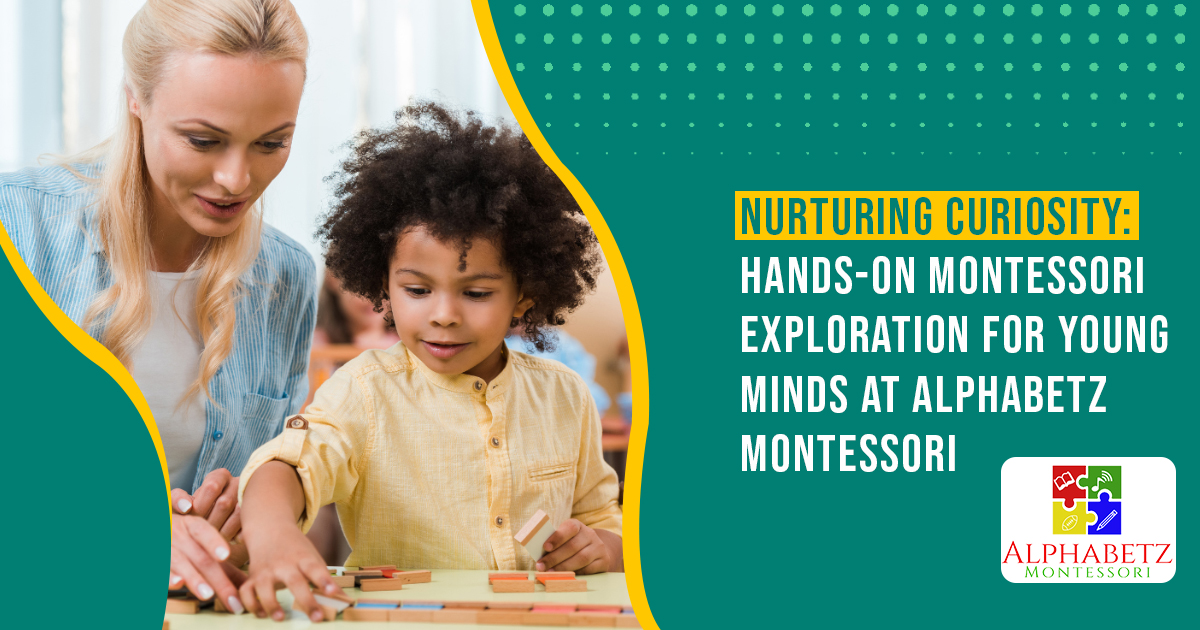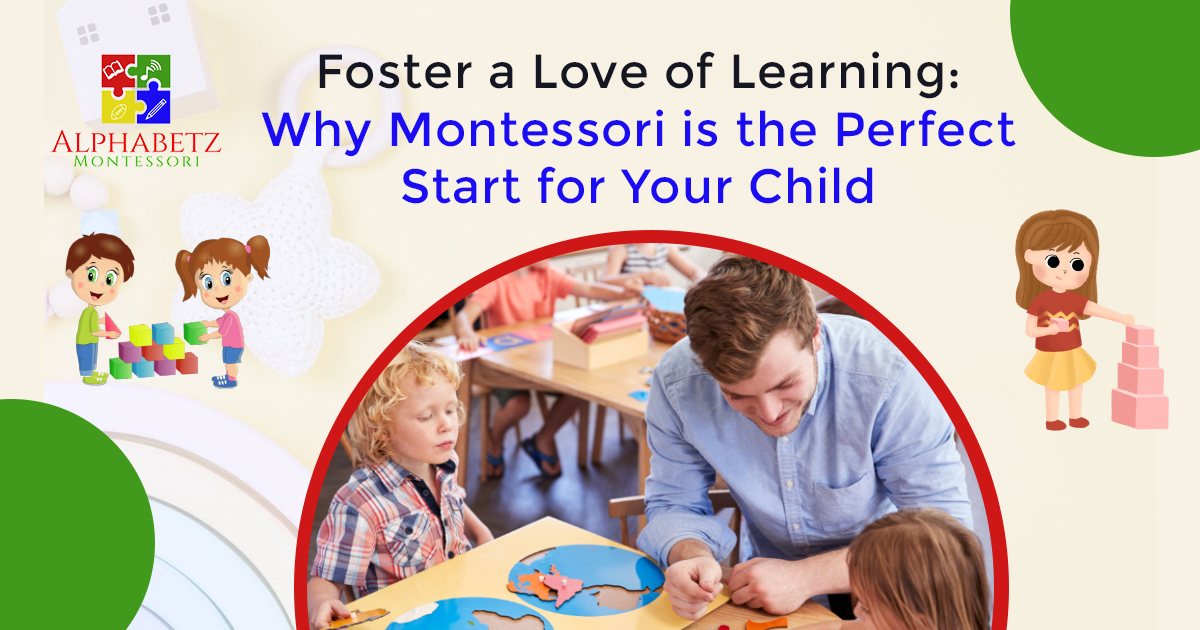Explore Alphabetz Montessori’s blog on early childhood education. Discover insights, and expert advice to support your child’s growth and learning journey.
The first five years of a child’s life are often called the foundation years and for good reason. During this period, a child’s brain develops faster than at any other stage of life. Experiences in early childhood shape how children think, learn, behave, and interact with the world for years to come. Understanding the importance of these early years helps parents make informed choices about their child’s education and environment. Rapid Brain Development in Early…
Independent learning is one of the most valuable skills a child can develop during the early years. It builds confidence, critical thinking, self-discipline, and a lifelong love of learning. Montessori education is uniquely designed to nurture independence by respecting each child’s natural curiosity and ability to learn at their own pace. In a Montessori classroom, independence is not forced it is carefully guided and encouraged every day. A Child-Centered Learning Environment Unlike traditional classrooms where…
Choosing the right early childhood education program is one of the most important decisions parents make for their child. The early years are a critical time for brain development, emotional growth, and building lifelong learning habits. Montessori education has gained global recognition as one of the most effective approaches for supporting holistic early childhood development. At Alphabetz Montessori, we believe Montessori provides the strongest foundation for children to grow into confident, independent, and capable learners.…
Motor skill development is a vital part of early childhood growth. In Montessori education, children strengthen both fine motor skills (small muscle movements of the hands and fingers) and gross motor skills (larger movements using arms, legs, and the whole body) through purposeful, hands-on activities. The best part? Many Montessori-inspired activities can be easily practiced at home using everyday materials. Here are 10 Montessori-inspired motor skill activities that support independence, coordination, and confidence while making…
In today’s world, academic knowledge alone is not enough to help children thrive. Social skills such as communication, empathy, cooperation, and respect play a crucial role in shaping a child’s overall development. Montessori education recognizes this early on and intentionally creates an environment where social growth is just as important as academic learning. At Alphabetz Montessori, social skills are nurtured naturally through everyday interactions, collaborative activities, and a thoughtfully prepared classroom environment. A Community-Based Learning…
Selecting the right preschool is a crucial step in shaping your child’s future. With so many educational options available, it can be overwhelming to decide which approach aligns best with your child’s needs and your family’s values. At Alphabetz Montessori in San Antonio, TX, we combine the proven principles of Montessori education with a supportive and engaging environment. Here’s how we prepare your child for a bright future: 1. Nurturing Independence Our classrooms are designed…
Choosing the right early education program for your child is one of the most important decisions you will make as a parent. At Alphabetz Montessori on Bulverde Rd, we take pride in offering an environment that blends care, learning, and growth, ensuring children feel nurtured, inspired, and ready to thrive. Located in a serene, family-friendly community, our Montessori program provides the perfect foundation for your child’s journey of discovery and development. A Nurturing Environment for…
Finding the right childcare for your child can be one of the most significant decisions you’ll make as a parent. It’s about finding a place that fosters your child’s natural curiosity and development, where they’re safe and encouraged to grow emotionally, socially, and intellectually. Located on Bulverde Rd, Alphabetz Montessori provides an exceptional Montessori-based daycare experience that differentiates it from other early childhood education centers in San Antonio, TX. This article will explore what makes…
In today’s fast-paced world, parents are constantly searching for educational methods that promote the holistic development of their children. Alphabetz Montessori, a leading institution for Montessori in San Antonio, stands out as a unique and effective approach that focuses on hands-on learning and nurturing curiosity in young minds. With more families exploring Montessori options, it's important to understand how this method works and why it's beneficial for children, particularly during their formative years. What is…
As parents, we all want to give our children the best possible start. Our choices during their early years can profoundly impact their future, shaping their values, abilities, and overall approach to life. One of the most significant decisions you’ll make is choosing the right educational environment for your child. Among the various educational philosophies available today, Montessori education stands out as a remarkable approach that fosters a lifelong love of learning. The Montessori Philosophy:…
